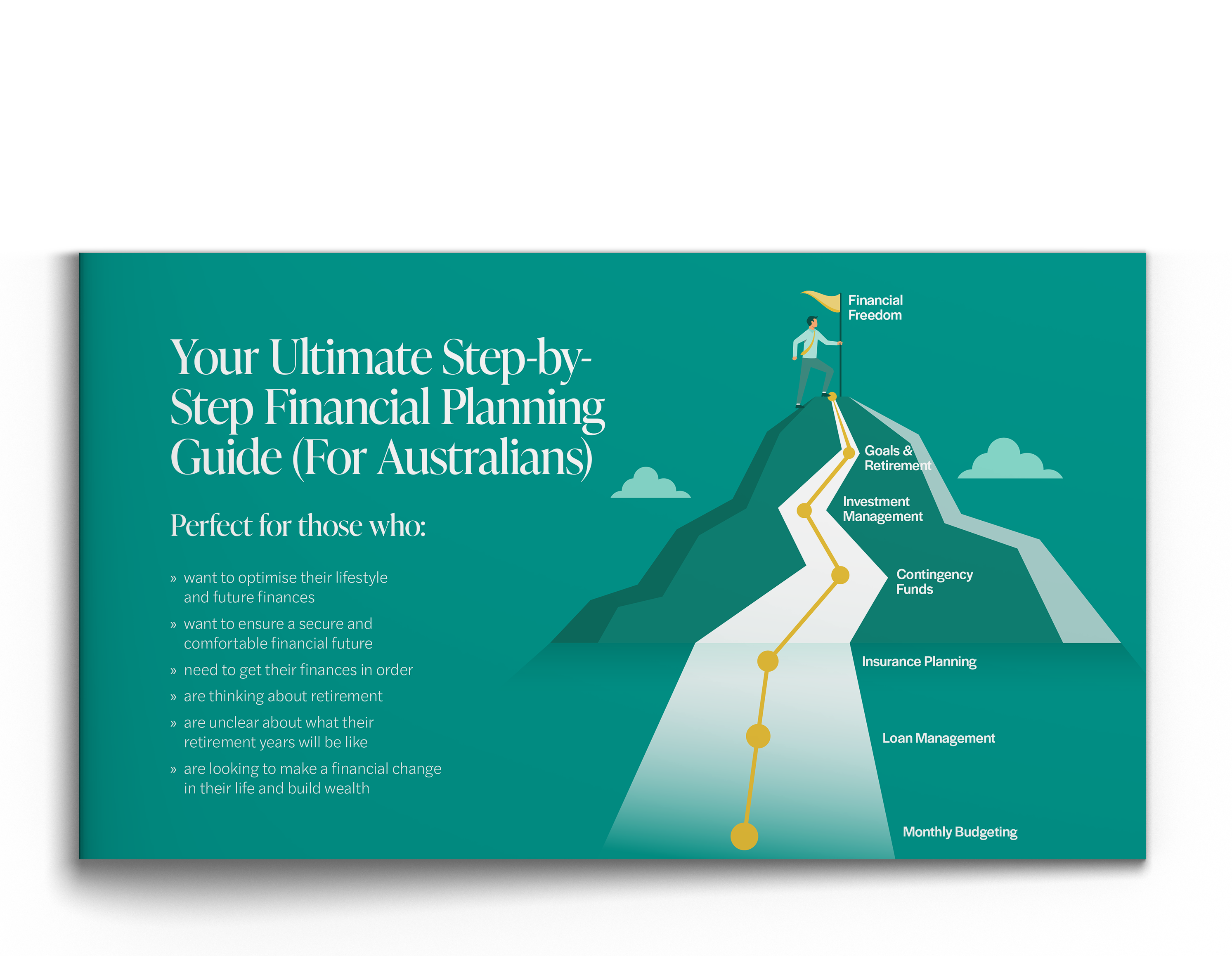In the late 1970s, Australia abolished the death duties tax; however, certain taxes with similar effects persist, such as capital gains tax and superannuation death benefit tax.
When it comes to estate planning, the goal is often to manage and distribute assets in a way to leave your loved ones in the best possible financial position. However, one crucial aspect of this planning is often overlooked — the tax on superannuation death benefits.
While we don’t have inheritance or estate taxes in Australia, the super death benefit tax certainly exists. Here’s what you need to know when you’re investing your money into Superannuation.
Having funds in Superannuation is usually a great financial structure from a tax perspective, as earnings and contributions are taxed at 15% during a member’s working life, then 0%* in retirement when they start an account-based pension (*up to the $1.7 million transfer balance cap).
Despite this being a great way to invest your money, there is the potential Death Benefits Tax to be aware of upon the death of a member.
When a member passes away, if the spouse or child under 18 receives all their Super, there is no Death Benefits Tax to pay. However, if the death benefits are paid to a non-tax dependent, there is a 15% Death Benefits Tax that applies. Examples of a non-tax dependent could be an adult child or an estate. This tax is ultimately borne by the dependents.
Here are the answers to our 8 most frequently asked questions about the tax on superannuation death benefits so you can best approach your retirement planning and estate planning.
Who is eligible to receive a superannuation death benefit?
In general, you can have the benefit paid out to:
- Your spouse, including de facto and same-sex partners
- Your dependants – children, including stepchildren and adopted children, and anyone else who is financially dependent on you at the time of your death
- Non-dependants who are financially dependant on you at time of your death, like an ex-spouse or former partner.
Your superannuation fund may have specific rules regarding who can receive a death benefit, so it’s important to check with them.
What is the tax rate on superannuation death benefits?
The tax depends on:
- Whether the beneficiary is your dependant
- Whether the benefit is paid out as a lump sum or a super income stream
- The taxable and tax-free components of the benefit
- Your age at death and the age of your beneficiary.
If the beneficiary is a spouse or dependant, the tax may be lower or waived altogether.
If the beneficiary is not a dependant, they may have to pay tax on the superannuation death benefit at their marginal tax rate, plus the Medicare Levy.
How does the tax differ depending on how the benefit is paid out?
Firstly, if your beneficiaries are dependants, the benefit can be paid out as either a lump sum or super income stream. If your beneficiaries are non-dependants, the superannuation death benefit will be paid as a lump sum.
If the death benefit is paid as a lump sum, the tax treatment will depend on the components of the benefit. The tax-free component includes any after-tax contributions you’ve made; it will be tax-free regardless of who receives it.
The taxable component of the benefit includes any pre-tax contributions you’ve made, plus any earnings on those contributions, and it may be subject to tax.
Whether the taxable component is taxed depends on the tax-free threshold. If the taxable component of the benefit exceeds the threshold, the non-dependant may be subject to tax at their marginal tax rate plus the Medicare Levy.
If the death benefit is paid as a super income stream, the payments will be subject to tax in the hands of your beneficiary, regardless of whether they are a dependant or non-dependant. This means that they will need to include the payments in their assessable income for tax purposes.
So the best option is to leave it to my spouse?
Indeed, it is a great option because death benefits paid to a spouse are tax-free.
However, when the spouse passes, the death benefit is likely to pass to a non-dependant (such as children over 25 years old) and be subject to their marginal tax rate plus the Medicare Levy. On a $100,000 taxable component of Super, this equates to $19,000 in additional tax.
The key to good advice is how this tax can be managed or possibly eliminated.
Where the tax can’t be eliminated, we can determine if it will be more beneficial for your superannuation death benefit to be paid to:
-
an individual beneficiary that may have no income
-
to your estate
-
or a combination of both
Where the tax can’t be eliminated, we can determine if it will be more beneficial for your superannuation death benefit to be paid to:
-
an individual beneficiary that may have no income
-
to your estate
-
or a combination of both
Get in touch with one of our experts here to discuss how we can help.
What is the tax treatment of an estate?
An estate is considered a separate legal entity for tax purposes. It is subject to its own tax obligations, including tax on superannuation death benefits, as well as Capital Gains Tax and income tax (like on interest or rental income).
What happens if I nominate multiple beneficiaries?
The tax liability will also be shared amongst them based on how much they receive.
Can I eliminate or reduce the tax on a superannuation death benefit by giving away assets before passing away?
You can choose to give away any amount and as many gifts as you like. However, your payment may be affected if the total value of your gifts is more than the value of the gifting-free area.
If your gift goes over the value of the gifting-free areas, there will be Centrelink effects with the deprivation of assets for 5 years of gifts in excess of what is excluding in the gifting provisions, which is $10,000 per annum, or $30,000 over five years.
How can an estate planning advisor help to minimise the tax on a superannuation death benefit?
Whether you are approaching estate planning as part of your retirement planning, or just getting your ducks in a row, Green Associates can make sure you are taking advantage of all the exemptions or deductions available to you to reduce your death benefits tax — or possibly, eliminate it.
Here are some strategies we may employ:
- We can help you choose the most appropriate beneficiary. For example, it may be more tax-effective to pay the benefit to your estate rather than to an individual dependant or non-dependant.
- We can help structure your estate plan in a tax-effective way. For example, we may recommend setting up a testamentary trust — a trust that comes into effect after your death — to hold the superannuation death benefit, which can help to minimise tax for your beneficiaries.
- We can advise on superannuation planning and tax planning to minimise amounts payable on the taxable component of the death benefit. For example, with the new rules that have been announced around super contributions, we can design a strategy that turns part, or all, of a taxable component of a superannuation balance to 100% tax-free — this could save you tens, possibly hundreds of thousands of dollars!
- We can offer insurance planning in case it assists in covering any potential tax liability that may arise from the payment of your death benefit.
Furthermore, we can help minimise the tax on your non-superannuation assets as well, such as property and shares, as part of both your retirement planning and estate planning.
In summary, there are many important considerations to take into account when planning your estate and considering the tax implications of death benefits. At Green Associates, we can help to ensure that you have a tax-effective and comprehensive estate plan in place. For your best course of action, speak to our friendly team of Financial Planners and Advisers for a tailored consultation on 1300 815 921 or at info@greenassociates.com.au
At Green Associates, all of our advisers are fully licensed and listed on the ASIC Moneysmart Financial Adviser Register. Green Associates is committed to providing the best solutions for you and your wealth-creation journey.




